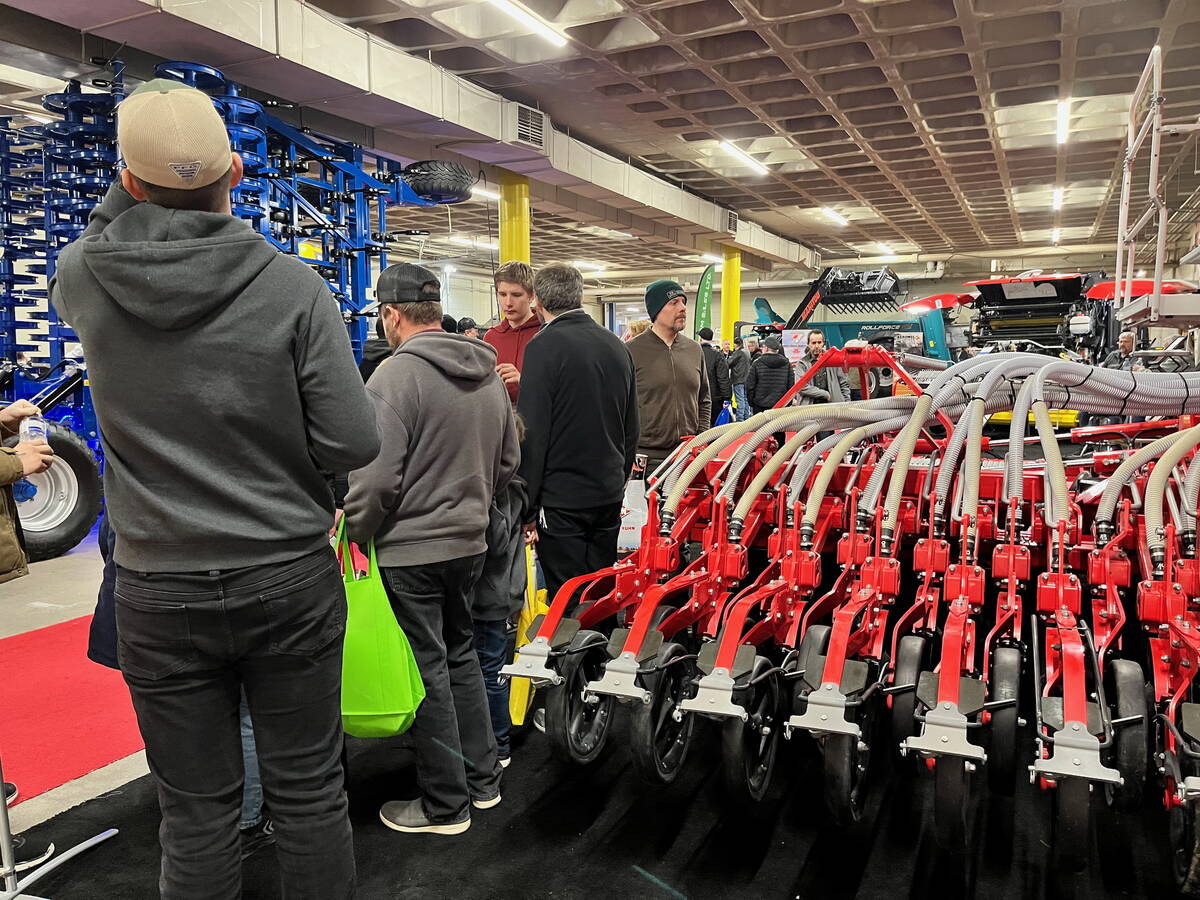Western Canada’s grain train backlog is hurting the industry’s Canadian customers too with some millers forced to close due to a lack of supply, the president of the Canadian National Millers Association (CNMA) says.
“Prolonged interruptions of up to three to four weeks in wheat and oat delivery by rail to mills have literally forced some mill locations in Canada to cease production,” Gordon Harrison said in an email Feb. 20. “This represents lost running time, lost business for producers and processors, lost wages to employees and potentially lost customers. The economic harm is mounting daily and is potentially irreparable.”
Read Also

Farmer mental health support extended in Manitoba
The Manitoba Farmer Wellness Program is slated for $300,000 over the next two years for its farm mental health services
Canadian millers are heavily dependent on western Canadian grains.
“In the 2012-13 crop year about 78 per cent of all wheat milled in Canada was of western Canadian origin,” Harrison said.
Most of the oats processed in North America are grown in Western Canada too.
“North American oat processors have been hit particularly hard,” Harrison said.
“Rail movement of Canadian oats to U.S. mills has been all but halted entirely, according to CNMA member sources.”
Not subject to cap
Moreover, the grain moved to eastern Canadian and American mills is deregulated and doesn’t fall under the revenue entitlement, also known as the revenue cap, which the railways claim is a disincentive to shipping grain.
The CNMA’s complaints underscore the seriousness of the current grain transportation problem, Keystone Agricultural Producers’ president Doug Chorney said in an interview.
“It’s cutting into the entire economy, so all the efforts the government makes can be wiped out quite fast by just one player in the value chain — and that’s the railways,” Chorney said.
“It clearly shows that this is an issue that requires government oversight. Simply allowing CN and CP to operate without any type of federal authority or oversight is not only a business hazard for the companies affected, but it’s a danger to the whole economy of the country. We can’t spend any more time analyzing it. We need action as fast as possible.”
Chorney said he’s heard of canola-crushing plants having trouble shipping out oil and meal and that Louisiana Pacific in Swan River had shut down its OSB plant recently due to a lack of rail service.
CNMA’s 13 member companies operate 55 wheat and oat mills across Canada, processing about 3.5 million tonnes a year, of which usually two million tonnes are wheat. Moreover, Canadian millers pay premium prices, making them valued customers.
Premium customers
Domestic milling demand is consistent one year to the next. The fact the railways are failing to properly service mills shows the problem isn’t just the West’s record crop, said Wade Sobkowich, executive director of the Western Grain Elevator Association.
“We have a 55,000-car shortfall and over half of that is a shortfall to the U.S. and domestic, which is non-regulated corridors,” Sobkowich said. “The fact that millers are having a problem just punctuates the fact that the grain revenue entitlement has nothing to do with this.”
Chorney agrees. The notion that the entitlement is the problem “needs to nipped in the bud.”
“They don’t provide good service to anybody,” he said.
The railways have blamed last year’s record crop and bad winter weather. Earlier in the crop year they also noted shipments were ahead of last year’s pace.
That’s not the case now. Shipments are down seven per cent from the same time last year, Sobkowich said.
“Seven per cent less is significant,” he added. “People put in orders well in advance, even before we knew how big the crop was, and the railways are underperforming relative to those projections even if we’d had a regular-size crop.”
Two weeks ago a record 50 ships were waiting for grain at the West Coast — 13 anchored at Prince Rupert and 37 at Vancouver.
More from the Manitoba Co-operator website: Railways cut producer car sites
Tough talk
Meanwhile, there’s tough talk from Alberta’s Agriculture Minister Verlyn Olson who planned to meet Ritz when he was in Winnipeg to meet with industry officials Feb. 24. Last week, Olson called on the federal government to fine railways that don’t meet service obligations.
Saskatchewan’s Economy Minister Bill Boyd led a delegation to Montreal to meet with the railways last week.
The new Fair Rail Freight Service Act provides for fines, but Olson said the act is inadequate and subject to a lengthy arbitration process and fines go to the federal government, not farmers or grain companies.
North American millers and bakers work on a just-in-time delivery schedule nearly every day of the year — something the railways don’t seem to understand, Harrison said.
“Unlike grain importers in offshore markets who have a choice in where they source their grain, North American consumers do not have alternative suppliers of fresh bakery products to turn to.”


















